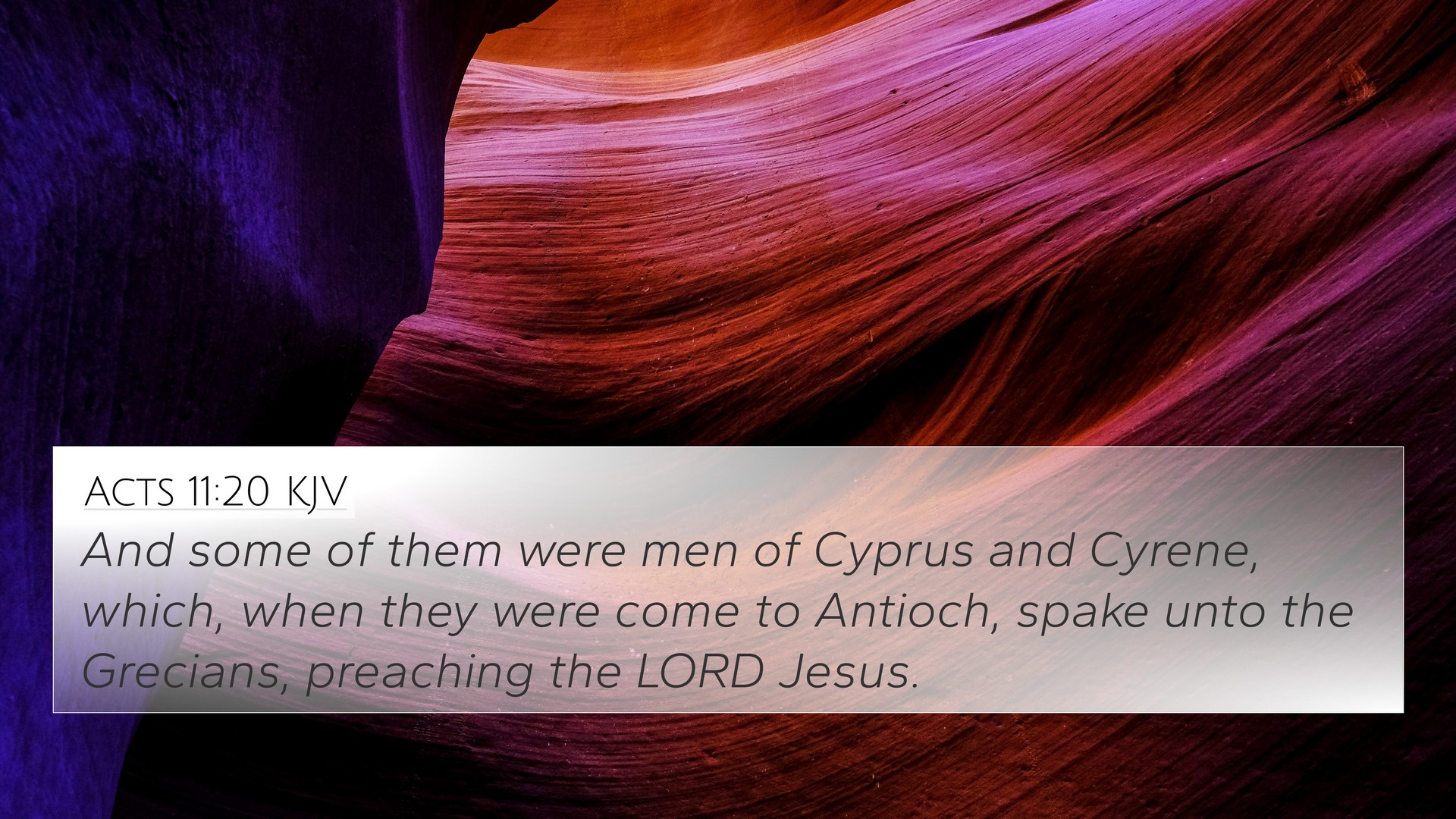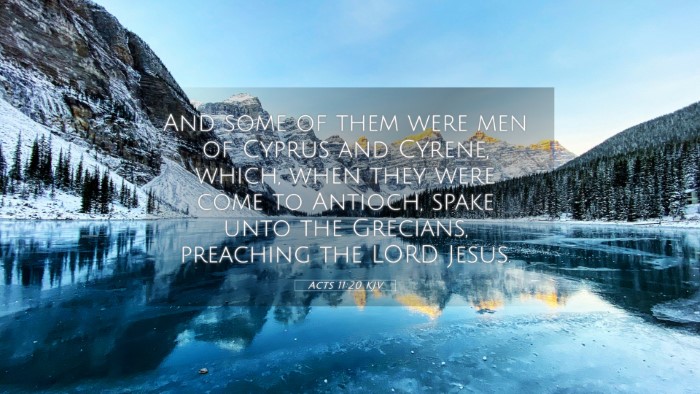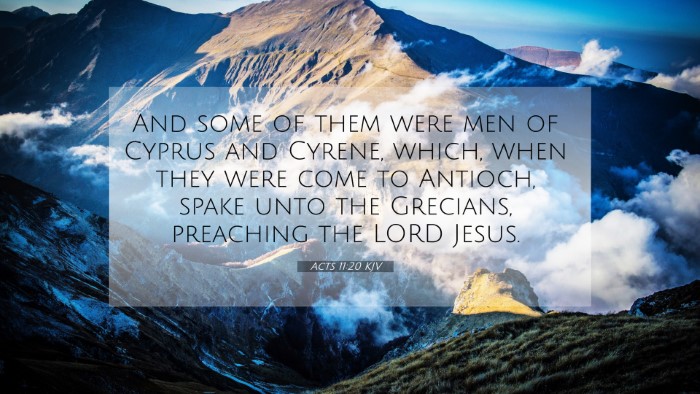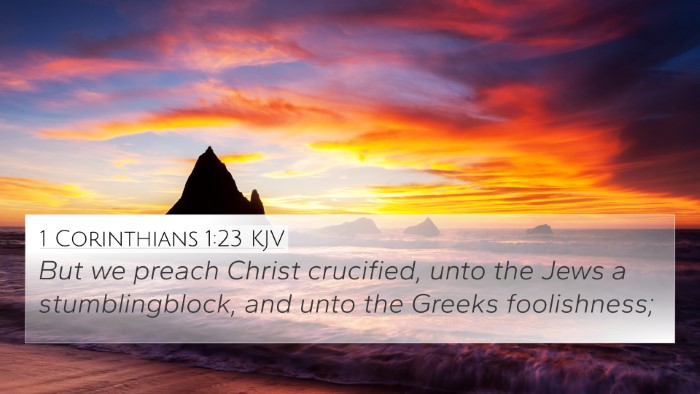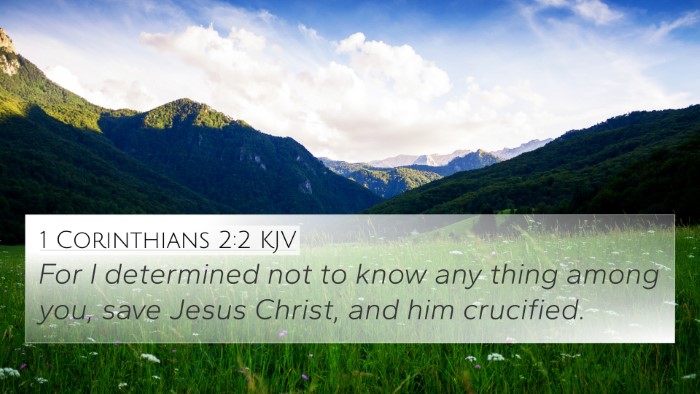This section features a detailed cross-reference designed to enrich your understanding of the Scriptures.
Below, you will find carefully selected verses that echo the themes and teachings related to Acts 11:20 KJV. Click on any image to explore detailed analyses of related Bible verses and uncover deeper theological insights.
 Matthew 27:32 (KJV) »
Matthew 27:32 (KJV) »
And as they came out, they found a man of Cyrene, Simon by name: him they compelled to bear his cross.
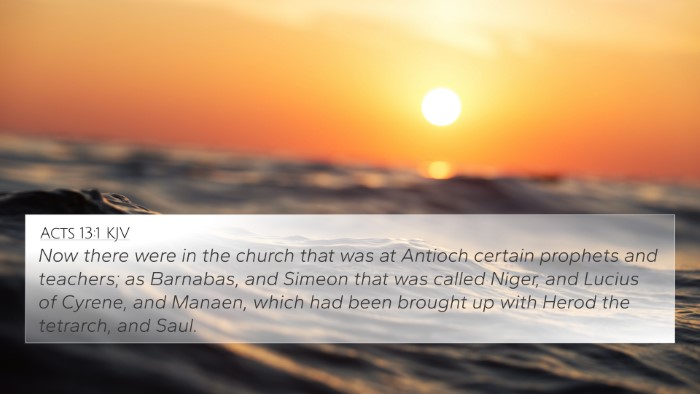 Acts 13:1 (KJV) »
Acts 13:1 (KJV) »
Now there were in the church that was at Antioch certain prophets and teachers; as Barnabas, and Simeon that was called Niger, and Lucius of Cyrene, and Manaen, which had been brought up with Herod the tetrarch, and Saul.
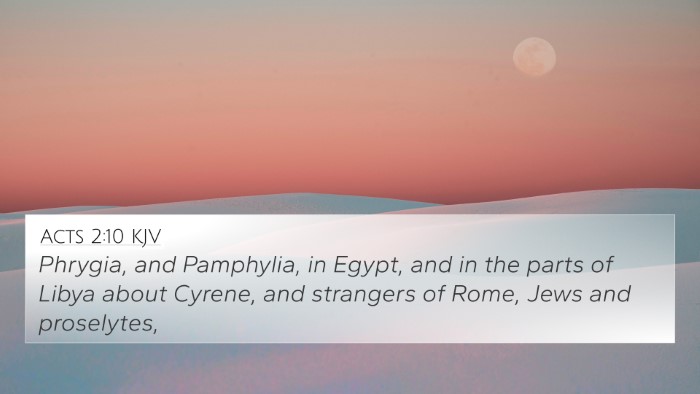 Acts 2:10 (KJV) »
Acts 2:10 (KJV) »
Phrygia, and Pamphylia, in Egypt, and in the parts of Libya about Cyrene, and strangers of Rome, Jews and proselytes,
 Ephesians 3:8 (KJV) »
Ephesians 3:8 (KJV) »
Unto me, who am less than the least of all saints, is this grace given, that I should preach among the Gentiles the unsearchable riches of Christ;
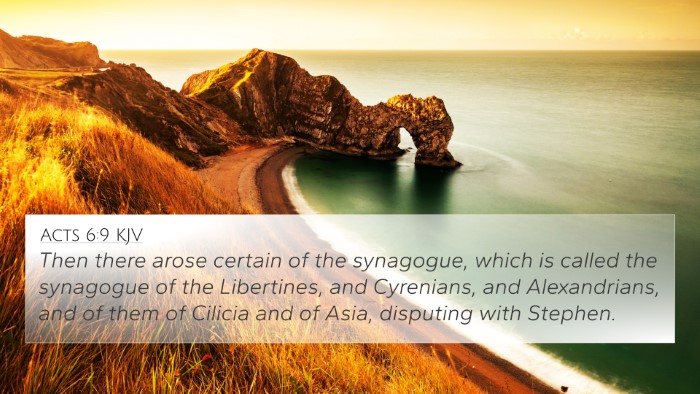 Acts 6:9 (KJV) »
Acts 6:9 (KJV) »
Then there arose certain of the synagogue, which is called the synagogue of the Libertines, and Cyrenians, and Alexandrians, and of them of Cilicia and of Asia, disputing with Stephen.
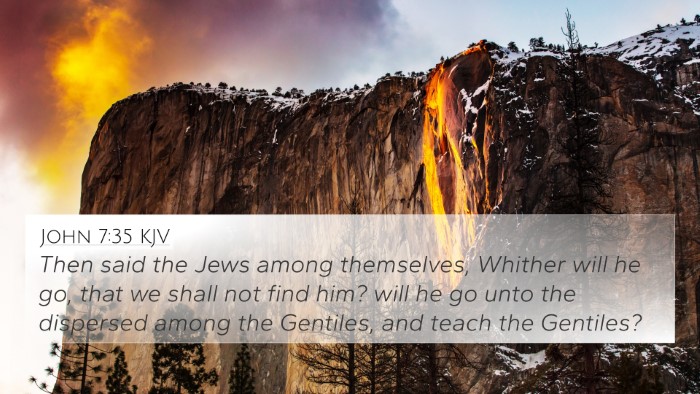 John 7:35 (KJV) »
John 7:35 (KJV) »
Then said the Jews among themselves, Whither will he go, that we shall not find him? will he go unto the dispersed among the Gentiles, and teach the Gentiles?
 Acts 8:5 (KJV) »
Acts 8:5 (KJV) »
Then Philip went down to the city of Samaria, and preached Christ unto them.
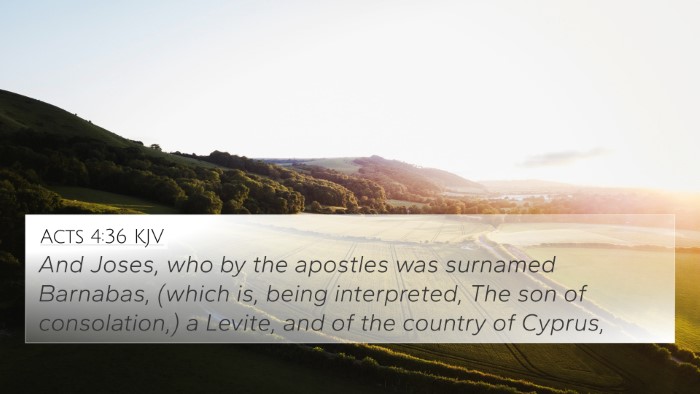 Acts 4:36 (KJV) »
Acts 4:36 (KJV) »
And Joses, who by the apostles was surnamed Barnabas, (which is, being interpreted, The son of consolation,) a Levite, and of the country of Cyprus,
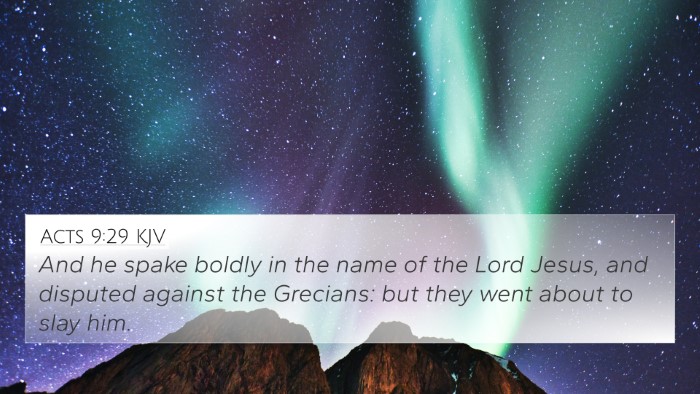 Acts 9:29 (KJV) »
Acts 9:29 (KJV) »
And he spake boldly in the name of the Lord Jesus, and disputed against the Grecians: but they went about to slay him.
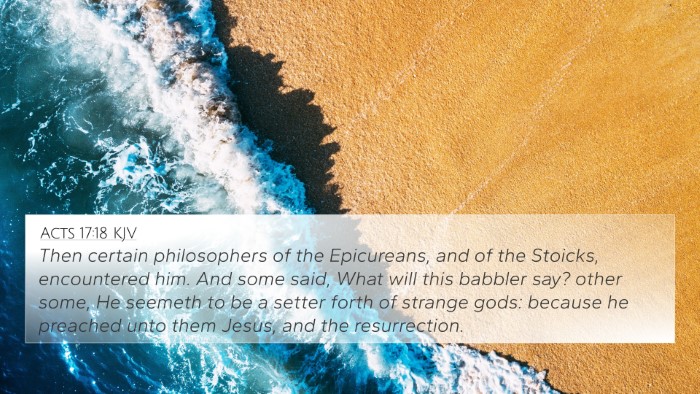 Acts 17:18 (KJV) »
Acts 17:18 (KJV) »
Then certain philosophers of the Epicureans, and of the Stoicks, encountered him. And some said, What will this babbler say? other some, He seemeth to be a setter forth of strange gods: because he preached unto them Jesus, and the resurrection.
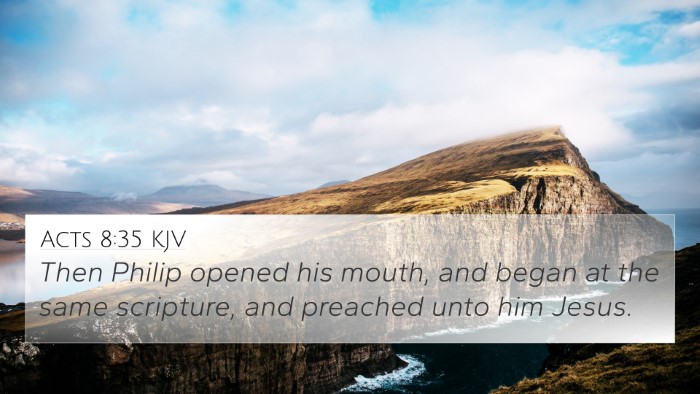 Acts 8:35 (KJV) »
Acts 8:35 (KJV) »
Then Philip opened his mouth, and began at the same scripture, and preached unto him Jesus.
 Acts 5:42 (KJV) »
Acts 5:42 (KJV) »
And daily in the temple, and in every house, they ceased not to teach and preach Jesus Christ.
 Acts 9:20 (KJV) »
Acts 9:20 (KJV) »
And straightway he preached Christ in the synagogues, that he is the Son of God.
